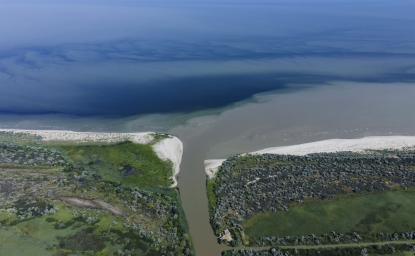Reported by Mary-Lea Cox
The American government has shifted its attitude toward environmental policy markedly, said participants in a September 30 conference at the Woodrow Wilson Center. Keynote speaker Mary Graham said that the U.S. has at last begun to tackle environmental problems that were considered politically too hard in the 1970s.
According to Graham, the American government is now turning its attention away from smokestacks, drainpipes, and better management of public lands, and toward:
* pollution from storm run-off;
* pollution from neighborhood businesses and farms;
* toxins in everyday chemicals;
* emissions from aging cars;
* indoor air pollution;
* ecological issues involving privately owned land; and
* (perhaps toughest of all) global warming.
The direction of change, Graham explained, is from conflicts over the management of public lands toward conflicts over the uses of private property. The priorities of the 1970s remain unfinished business, but the frontier has moved on -- with enormous consequences for government, business, environmental groups, and concerned citizens.
Graham cautioned that this "rich, experimental time" in environmental policy is likely to be just as traumatic as the period that began with the first Earth Day (April 1970), thus that creative thinking would be required for developing the right policy tools. There is the possibility of enormous progress but also the "possibility of stalemate if we do not face tough issues squarely," she said.
In a session led by George T. Frampton, acting director of the President's Council on Environmental Quality, the conference highlighted new approaches to reconciling private property interests with environmental needs. William Pease, a senior scientist at the Environmental Defense Fund, showed how the Internet can be a powerful tool to approach new environmental problems. Paul Portney, president of Resources for the Future, addressed the question of what we should be doing now to prepare for our environmental needs in 2030.

Environmental Change and Security Program
The Environmental Change and Security Program (ECSP) explores the connections between environmental change, health, and population dynamics and their links to conflict, human insecurity, and foreign policy. Read more

Explore More
Browse Insights & Analysis
In the Wake of a Tropical Cyclone: Turning to Violence or Building Peace?

Harnessing the Benefits of Water Cooperation in an Increasingly Complex World

